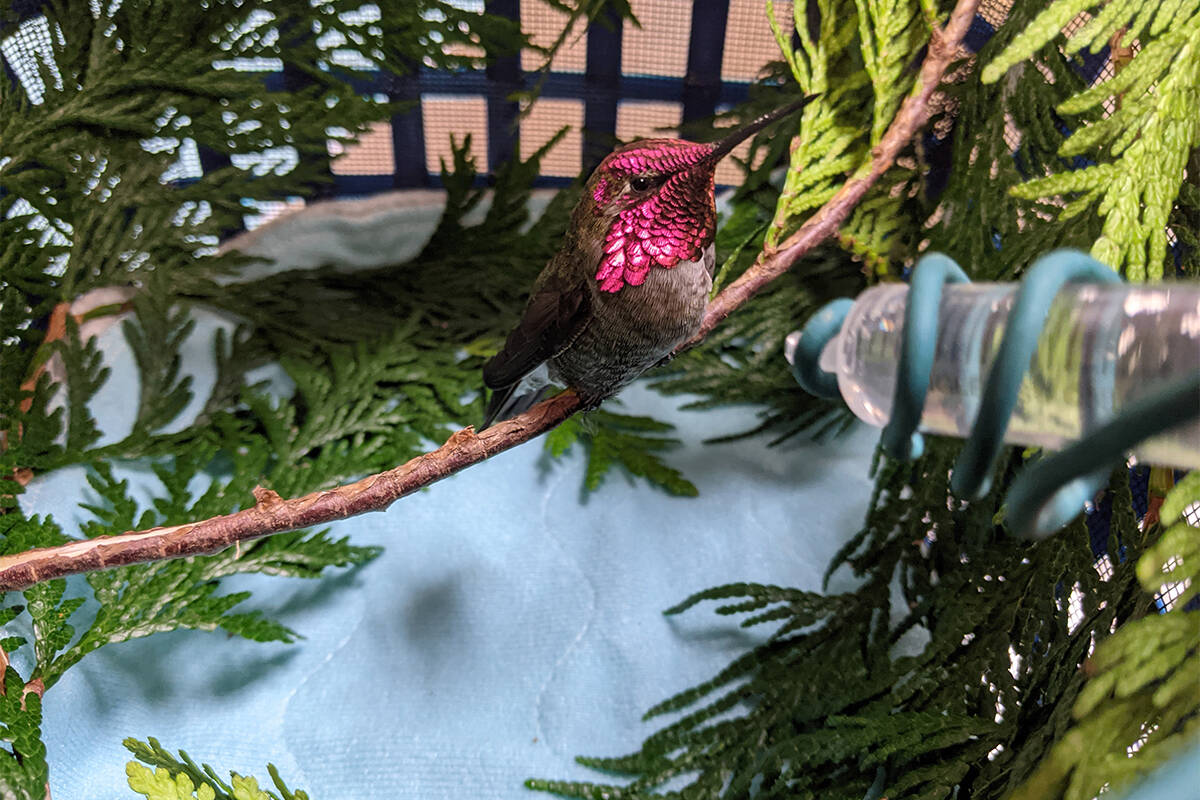Anyone with a hummingbird feeder still out is past the point of no return and committed to a winter of maintenance and support.
The small feathered wildlife that will migrate likely have by now, says a biologist with the BC SPCA Wild Animal Rehabilitation Centre (ARC).
On southern Vancouver Island in particular, both the Anna’s and the rufous hummingbird may not choose to migrate because of the mild winter temperatures and availability of food, said Andrea Wallace, manager of wild animal welfare at the Metchosin centre.
Wildlife biologists, and the BC SPCA organization in general, don’t tend to condone feeding of wildlife, but it’s a bit different with hummingbirds. The feeders are species specific, where other bird feeders can drop seeds and impact other critters such as squirrels and raccoons.
READ ALSO: Squirrels don’t need your nuts, thanks
“If people are super keen and keeping those feeders maintained, it’s OK, but generally wildlife doesn’t need our help to find food. It makes them reliant on a food source that is not natural,” Wallace said.
Feeders remaining out now, after the fall migration, are committed to winter maintenance as the birds become reliant on the food source.
There are three keys to keeping the birds fed throughout the winter – don’t change the nectar, keep the feeder clean and don’t let it freeze.
“A lot of people think they’ll just up the sugar content so it won’t freeze, and that’s really bad for hummingbirds. It can be damaging, it can be deadly,” Wallace said.
Wild ARC uses and recommends this recipe: Boil water for two minutes; mix one part white sugar to four parts water; and allow the mixture to cool before filling feeder. Never use food colouring.
READ ALSO: How to keep the hummingbirds fed during a cold snap
Never use honey sweeteners, molasses, brown or raw sugar. White sugar is closest to the sugars they find in nature.
If there is a cold snap, bring the feeder inside after dusk and put it back out in the morning. Having more than one feeder allows for rotation through the day.
Keep feeders clean, any fungus or bacteria can impact many birds with fungal or bacterial infections that can make their tongues swell, causing death. Feeders should be cleaned with a solution of one part white vinegar to four parts water about once a week. Change the nectar solution every few days.
Orphaned hummingbirds are often the first babies to arrive at Wild ARC each spring. For those not up to the task of maintaining a feeder, or looking to help in other ways, the wildlife rehab facility offers a variety of ways to donate. Among them is a targeted $25 donation for a week’s worth of nectar. Visit spca.bc.ca/locations/wild-arc for more.
Do you have a story tip? Email: vnc.editorial@blackpress.ca.
Follow us on Twitter and Instagram, and like us on Facebook.

